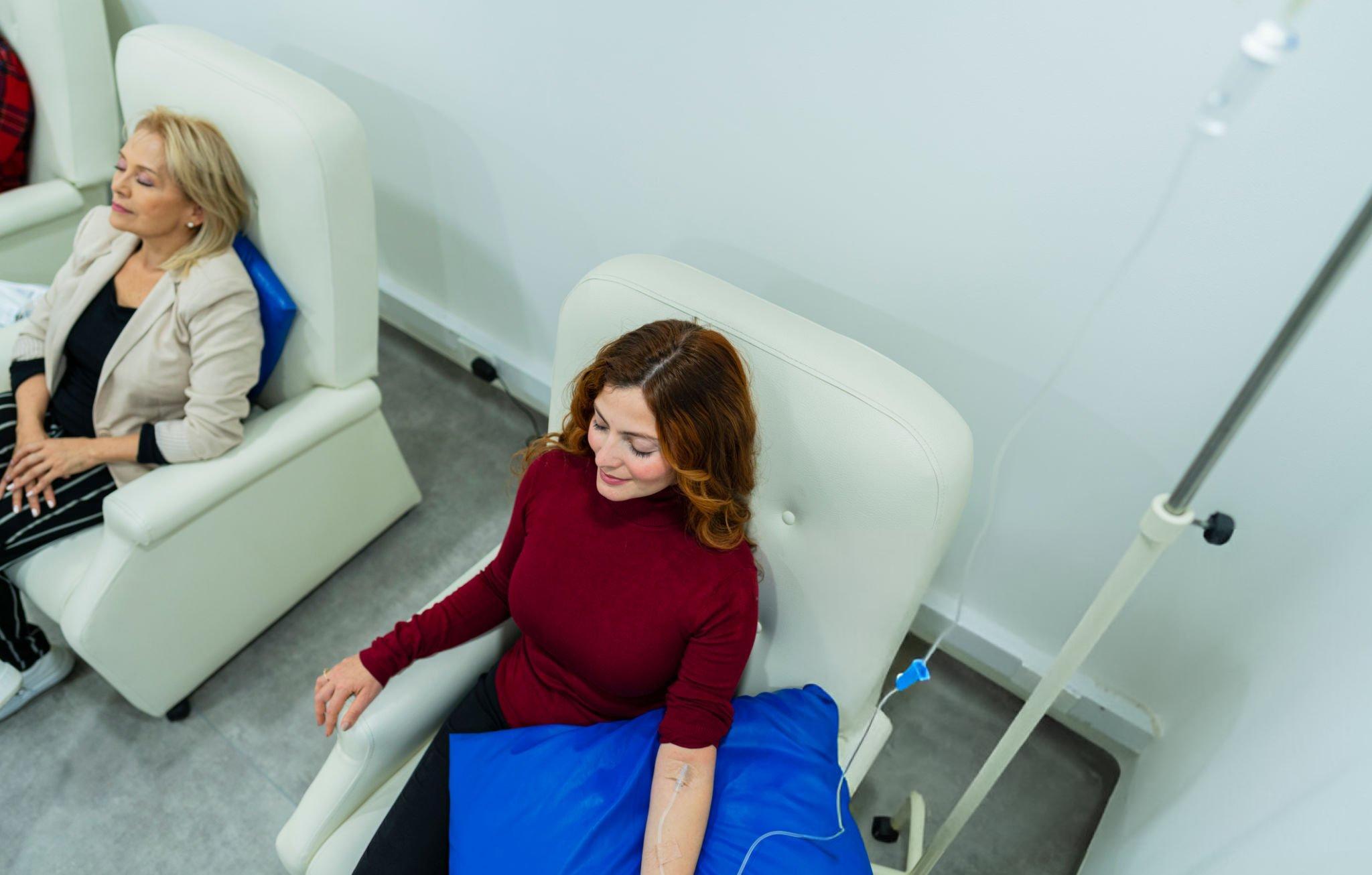Gut Health and Lyme Disease: How Functional Medicine Can Help
Lyme Disease is already known for its complexity. But what many people don’t realize is how deeply it can affect the gut. When someone is dealing with Lyme, they’re also often battling gut discomfort, food sensitivities, bloating, or even irregular digestion. It’s not uncommon to chalk these symptoms up to poor diet or stress, but they can actually be driven by the inflammation and immune dysfunction Lyme creates within the digestive system.
That’s where Functional Medicine steps in. Instead of just focusing on the obvious symptoms like joint pain or fatigue, it looks at the deeper layers—how well the gut is functioning, what the immune system is doing, and whether toxins, parasites, or co-infections are playing a role. A personalized approach can be the key to real progress when healing from Lyme. One of the main areas to start is gut health.
The Connection Between Gut Health And Lyme Disease
The gut isn’t just about digestion. It plays an important role in immunity, hormone balance, and detox. Lyme Disease can throw all of that off. Once the infection triggers an immune response, inflammation spreads. That inflammation often targets the gut lining, creating a leaky gut effect where harmful substances can pass into the bloodstream. When that happens, the body is left reactive, tired, and overloaded.
Signs that Lyme Disease may be impacting the gut include:
- Regular bloating or gassiness, even without major dietary changes
- New food intolerances that seem to pop up suddenly
- Constipation or diarrhea that doesn’t follow a clear pattern
- Constant fatigue that worsens after meals
- Skin breakouts, brain fog, or headaches linked to digestion
Think of the gut like your foundation. If it’s not steady, everything else on top of it feels unstable too. The cascade of symptoms from Lyme becomes harder to manage if the gut is inflamed or not able to absorb nutrients properly. Left unchecked, this can affect how the body gets rid of toxins, conserves energy, or stabilizes mood.
Inflammation adds another layer. Lyme bacteria can activate immune cells in the gut and make everything more reactive. Over time, this chronic immune response puts extra pressure on the gut wall, opening the door to infections, parasites, or overgrowths like Candida. It becomes more than a digestion issue—it’s an immune overload that can lead to long-term health challenges.
Functional Medicine And Gut Health
Functional Medicine doesn’t treat symptoms as isolated problems. It explores the deeper root causes of what’s happening in the body. With Lyme and digestive issues, it often starts by asking: Is the gut absorbing nutrients properly? Are there toxins or pathogens creating more damage? Is inflammation being triggered when it should be settling down?
To answer these questions, several lab tests are commonly used:
1. GI Map: This test examines the full range of bacteria, viruses, and parasites in the gut. It can show if harmful organisms are present, and whether beneficial bacteria need support.
2. Micronutrient Testing (Spectracell): This measures how well your body absorbs and uses key vitamins, minerals, and antioxidants. It uncovers deficiencies that can weaken the gut lining or immune response.
3. Functional Blood Chemistry Analysis: This provides a broad overview using over 60 health markers. It includes liver, thyroid, vitamin D, and inflammation panels. If Lyme is suspected, CD57 testing is added to assess immune function.
These results give clear direction for care. Based on what the labs reveal, practitioners can recommend support for detox pathways, rebalancing gut bacteria, or using targeted nutrients for gut repair. The plan isn’t generic—it’s built around your history, your results, and how you're feeling day to day.
When you begin supporting the gut with this type of care, healing can start from the inside out. Once inflammation drops and nutrients get absorbed correctly, Lyme-related symptoms like fatigue, joint pain, or foggy thinking can start to ease. A supported gut helps the immune system and nervous system recalibrate. And that’s when true recovery is possible.
Dietary And Lifestyle Changes For Improved Gut Health
Managing Lyme Disease often means adjusting what you eat and how you live to better support the gut. Eating more anti-inflammatory foods can help calm the gut and lower irritation. A gut-friendly plan often includes:
- Leafy greens and a range of colorful vegetables
- Omega-3-rich foods like wild salmon, flaxseed, and walnuts
- Probiotics from sources like yogurt, kefir, and fermented vegetables
- Prebiotics such as garlic, onions, leeks, and asparagus
Drinking plenty of water is just as important. Hydration supports digestion and helps maintain the right balance of gut bacteria. Quality supplements can also be helpful, especially if they support digestive function, encourage immune balance, or provide antioxidant protection.
Lifestyle matters, too. Regular physical movement, like walking or light yoga, boosts circulation and digestion. Reducing stress plays a big role in gut health. High stress levels can cause stomach upset and hinder healing. Practices like daily breathing exercises or mindfulness can help lower stress and build resilience.
Seeking Professional Help
Addressing both Lyme Disease and gut health challenges isn’t something you should take on alone. A skilled Functional Medicine practitioner can bring clarity and structure to your healing plan.
They’ll help interpret detailed lab results and build personalized strategies. From targeted supplementation to digestive support and gut-strengthening foods, everything is tailored to your needs. If food sensitivities are part of the picture, they can also guide you through safe and supportive meal planning.
This level of care goes deeper than just masking symptoms. It gives you the opportunity to tackle what’s going on underneath and rebuild from a stronger foundation.
Infinity Wellness Telehealth offers this kind of support in Austin. Our experienced team knows how to work with complex cases like Lyme and can offer clearly outlined steps that support gut repair, immune balance, and renewed energy.
Your Path To Enhanced Wellness
Supporting gut health while managing Lyme Disease holds real value—both short term and long term. A well-functioning gut helps with nutrients, enzymes, hormones, and detox. Together, that creates the conditions for your body to finally begin restoring balance.
Everyone’s timeline and needs are different. That’s why a one-size-fits-all approach doesn’t work, especially when dealing with a condition as layered as Lyme. Functional Medicine shifts the focus from symptom relief to whole-body wellness. It listens to your story, reviews your labs, and directs treatment based on your unique state of health.
When you choose a personalized approach, you stop guessing and start healing. Progress may feel slow at first, but over time, the results become clear. Better energy. Fewer symptoms. Stronger digestion. A clearer head. It’s about creating lasting change from the inside out. And it starts with giving your gut the care it’s been needing all along.
At Infinity Wellness, located in Austin, TX, we specialize in holistic, root-cause care tailored to your unique health journey. Serving both local and nationwide patients through in-person and virtual services, we offer comprehensive programs to address conditions such as hormonal imbalances, chronic fatigue, and digestive issues. Our goal is to help you achieve long-term wellness and vitality. Ready to transform your health?
Enhancing gut health can be a meaningful step in managing Lyme Disease, and exploring support options like a colon cleanse in Austin may help reduce inflammation and improve digestive function. Infinity Wellness Telehealth offers personalized, root-cause care to help you feel your best from the inside out. Take the first step toward a renewed sense of health and wellbeing by booking an appointment with us today.




